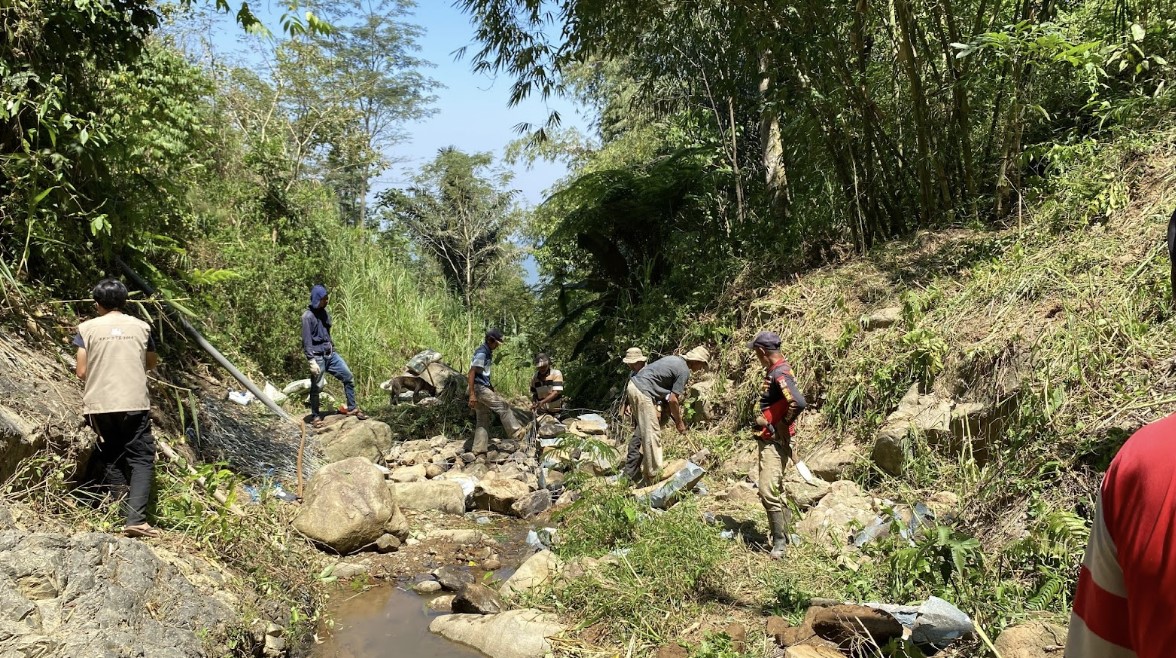Prof. Yogi's Scientific Oration: i-Process as a Transformer in Chemical Technology
By Adi Permana
Editor Adi Permana

BANDUNG, itb.ac.id – ITB's Forum of Professors held another science oration in ITB West Hall on Saturday (11/02/2023). One professor who had the opportunity to share his study was Prof. Yogi Wibisono Budhi from the Faculty of Industrial Engineering (FIT) with the topic "i-Process as a Transformer in Chemical Technology".
i-Process- short for "Intense Process"- is a model for transforming the technology of equipment used in the field of chemistry. Processes must be intensified to improve the technology's performance, energy conversion, and selectivity while reducing energy consumption. At least 10-20% of the cost in a plant is allocated just for the equipment; thus, i-can help reduce the overall cost of plant supplies.
"To quote 'using less mass to produce more mass', we can use fewer materials and energy to create a product with far superior performance," Prof. Yogi explained.
For instance, conventional reactors are typically around ten cubic meters large and demand large operations. However, using the i-Process paradigm can create an improved version of these reactors- microreactors. Microreactors are only 3 liters (or 0.003 cubic meters) in size yet have greater production efficiency and 20% higher selectivity. Their smaller size makes them easier to control.
Further development and implementation of i-Process may bring limitless possibilities. The ultimate goal of the model is to create transformation in a short amount of time, and its product has a long history from the 14th century. It was not until 2007 that the research did bring to fruition; Prof. Yogi was invited to the Netherlands to present his views on reverse flow reactors.
Thanks to its greater efficiency, i-Process has many advantages. Aside from lower energy consumption and operational costs, it has a smaller form factor with less waste produced. It also guarantees better safety, market availability, productivity, and public image.
i-Process changes the design paradigm from scale-up (transforming a minor laboratory-scale process into a bigger industrial-scale one) to scale-out (augmenting the quantity as the laboratory-made product can be directly implemented). Prof. Yogi said that in-depth research might lead to the expansion of flow reactors, nanocatalysts, Pd-Ag-based reactor membranes, and microreactors.

Prof. Yogi is an alumnus of the ITB Chemical Engineering study program graduate, receiving his Bachelor's degree in 1995 and Master's degree in 1997. He pursued his doctorate at TU Eindhoven, majoring in Chemical Reactor Engineering, and completed his Ph.D. in 2005. He has published 100 papers in national and international journals. Furthermore, he graduated more than 80 undergraduate, 42 master's, and 6 doctoral students.

Prof. Yogi also won numerous various awards, which are listed as the following:
1. Satyalancana Karya Satya 10 Years and 20 Years from the Government of Indonesia
2. World Class Professor 2019 and 2022
3. Competence, Directorate of Resources, Ministry of Education, Culture, Research, and Technology
4. Best Presentation of Research Grants Kemenristek Dikti 2016
5. Best Paper in The 3rd International Conference in Electrical Vehicular Technology (ICEBT) 2015 in Solo
6. Best paper in the Indonesian Chemical Engineering National Seminar 2012
Reporter: Lukman Ali (Mechanical Engineering '20)
Translator: Ariq Ramadhan Teruna (Chemical Engineering '21)

.jpg)

.jpg)
.jpg)
.jpg)


